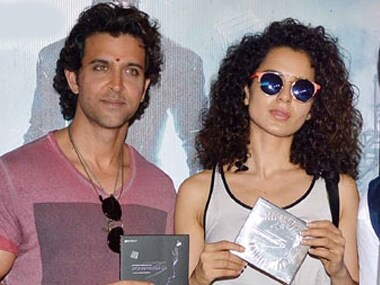The Kangana Ranaut-Hrithik Roshan spat has captivated the media and has been the focal point of much controversy. Without reiterating the grossly publicised details of the dispute, we would like to address some of the larger issues and debates that the controversy invokes. The first among these that requires examination, is the question of harassment. While certain groups of people may be more vulnerable to it, harassment is not targeted at or perpetrated by any one particular gender — anyone may be a victim of physical, financial, mental or emotional abuse and harassment. [caption id=“attachment_4143487” align=“alignleft” width=“380”]  The Hrithik Roshan-Kangana Ranaut spat invokes certain issues/debates around gender. File Photo[/caption] Therefore, in a dispute such as this, instinctively assuming that the woman was victimised — only because she’s a woman — is not only an unfair judgment, but, indeed, can be extremely patronising and detract her individual agency. Unfortunately, our judgment of right and wrong can often be biased by gender, rather than being embedded in factual accuracy or a moral framework. To demonstrate this argument, imagine if a dispute involving allegations of threats, harassment and the like were to unfold between two individuals of the same gender — a lesbian or gay couple, for instance. In such a scenario, we would be much more reluctant to pass judgments, and the dynamics and politics of this debate would change. Our contrasting analysis of these two scenarios exposes our internalised biases, and this becomes truly problematic when our laws and legal judgments begin to be dictated by these biases or worldviews. This brings us to the second debate: we believe that laws shouldn’t be reflective of public opinion, and must strive to be as neutral and equitable as possible. The laws governing rape, abuse, alimony and even sexual harassment in the workplace are all designed to bring to justice the perpetrators of such violence against women, whereas ideally they should condemn and penalise physical, mental and emotional abuse against all genders, including transgenders. Our legal and political discourse refuses to even acknowledge and debate rape against men or transgender individuals, let alone deliver justice for them. We have managed to politicise gender, much like caste and religion, all of which must ideally be depoliticised for us to frame neutral and equitable laws. Thirdly, we must disregard the notion of competition and battle between genders. Rather, it must be a collective exercise to ensure justice and empowerment for historically oppressed and marginalised individuals. You don’t have to belong to a particular gender to fight against discriminatory practices — men, for instance, have the ability and inclination to rally for equal rights for all. Men who spoke against the regressive practice of instant triple talaq are a case in point. Women, in turn, also realise that unbalanced affirmative action programmes lead to further discrimination, thereby contributing to the creation of an inequitable society. This is not to say that affirmative action is unnecessary. There is no doubt that it is imperative in certain scenarios; however, it is the nature of affirmative action that can be debated. We need such action to restore claims and rights to those that have been denied them, but not by creating laws that are biased or lopsided. Instead, we must focus on creating and providing opportunities to women that would enable them to lead empowered lives, such as reservations in Parliament or government, women-exclusive microfinance institutions, higher yields on saving schemes, and adoption rights for single women. While we strive to achieve equality for women, we must also ensure that we do not create new sites of disparity and discrimination, or exclude others from access to justice in the process.
Unfortunately, our judgment of right and wrong can often be biased by gender, rather than being embedded in factual accuracy or a moral framework.
Advertisement
End of Article


)



